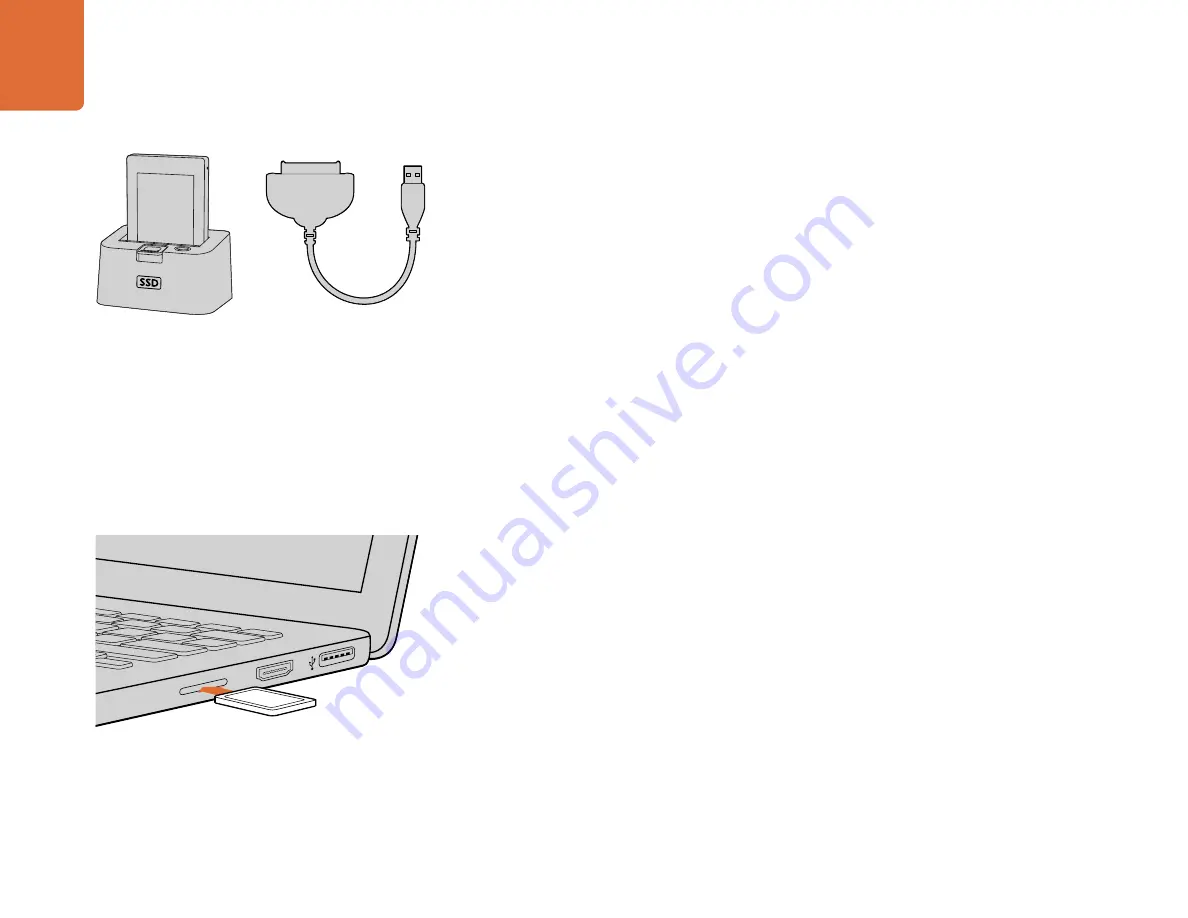
54
Post Production Workflow
Working with Files from SSDs
To import your clips from a SSD:
Step 1.
Remove the SSD from your Blackmagic Cinema Camera or Production Camera 4K.
Step 2.
You can mount the SSD to your Mac OS X or Windows computer using either an eSATA
or Thunderbolt dock, for example Blackmagic MultiDock. You can also use an eSATA to
USB adapter cable to plug the SSD straight into a USB port on your computer. USB 3.0 is
preferable as USB 2.0 is not fast enough to edit video in real time.
Step 3.
Double click on the SSD to open it and you should see a list of QuickTime movie files or folders
that contain your CinemaDNG RAW image files. Depending on the format you chose to record
in, you might have a mixture of files, but they will all use the same naming convention.
Step 4.
Now you can simply drag the files you want from the SSD onto your desktop or another
hard drive, or you can access the files straight from the SSD using your NLE software.
CinemaDNG RAW files are saved to the SSD as separate DNG images for each frame.
This is an open format and you can use many software applications to view your RAW 2.5K
images as a video sequence.
Step 5.
Before you unplug the SSD from your computer, it's always a good idea to eject the SSD
safely using either Mac OS X or Windows first.
Working with Files from SD Cards
You can access your ProRes or CinemaDNG files straight from your SD card with any Mac OS X or
Windows computer that features an SD card slot or by using an SD card reader.
Step 1.
Remove the SD card from your Blackmagic Pocket Cinema Camera or Blackmagic Micro
Cinema Camera and insert it into the SD card slot of your computer, or SD card reader.
The SD card can be accessed the same way as you would an external hard drive, USB drive
or any other media storage device attached to your computer.
Step 2.
Double click on the SD card to open it and you should see a list of QuickTime movie files
or folders which contain your CinemaDNG RAW image files. Depending on the format
you chose to record in, you might have a mixture of files and folders, but they will all use
the same naming convention.
Step 3.
Now you can simply drag the files you want from the SD card onto your desktop or another
hard drive, or you can access the files straight from the SD card using your NLE software.
Step 4.
Before you physically remove the SD card from the SD card slot, it's always a good idea
to eject the SD card safely using either Mac OS X or Windows first.
Edit directly from the SSD by removing it from your
camera and mounting it on your computer using an eSATA
Thunderbolt dock or USB 2.0 docking cable.
Post Production Workflow
HDMI
Insert your SD card into any computer with an SD card slot to
access your clips immediately.











































